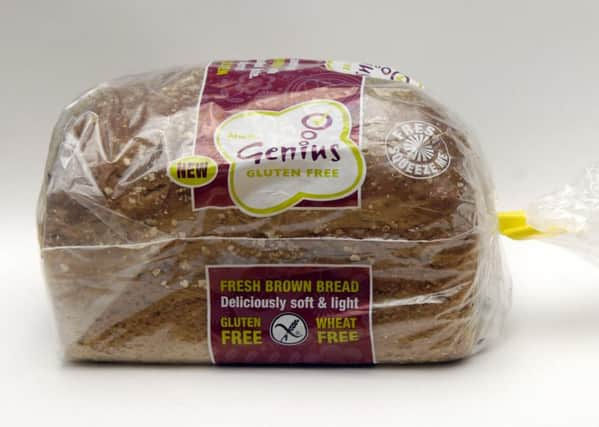It is essential that coeliacs get treatment


IN RECENT weeks, the need for gluten-free food to be provided on NHS prescription for people with coeliac disease has come under media scrutiny. Despite lots of misinformation and questionable assumptions there is an underlying view that gluten-free food shouldn’t be something the NHS offers.
Coeliac UK, as the national charity for people with coeliac disease, strongly challenges this view. Our experience of listening to thousands of patients with the condition and the healthcare professionals who look after them, convinces us that there is still an important need to provide this low-cost support on the basis of long-term savings to the NHS and dealing with health inequalities.
Advertisement
Hide AdAdvertisement
Hide AdThe only treatment for coeliac disease is a strict lifelong gluten-free diet. Without this you risk osteoporosis, malnutrition, infertility and even rarely small bowel cancer. And yet keeping to such a restrictive diet can be difficult – independent research studies have shown this many times over. Gluten can be found in many foods, not just the obvious such as breads, flours and pastas. So every time you eat can be a challenge – is this food safe? Access to gluten-free staple foods such as breads and pasta makes the diet easier and saves the NHS from dealing with expensive long-term complications.
So why should the NHS provide gluten-free foods on prescription? Surely supermarkets shelves are groaning with this type of food nowadays? Appearances can be very deceptive. Access to staple gluten-free products remains patchy and restricted to large supermarkets, many of which are located out of town. Supermarkets are also increasingly opting for convenience sized stores in large cities and urban centres which stock few, if any, gluten-free items. Small local stores and budget supermarkets are equally as bad. This means those without access to reliable transport often have difficulties in sourcing staple foods as do people with coeliac disease in rural areas who find themselves a long way from shops stocking gluten-free food.
Cost is also a barrier as gluten-free staple foods can cost around three to four times as much as their gluten-containing equivalent. Gluten-free bread costs around four times that of a standard loaf and people with coeliac disease on low or fixed incomes in particular need the support that gluten-free prescriptions provide.
It is these staple foods only which are provided on prescription. National guidelines, developed by Coeliac UK, set out clearly that only gluten-free staples should be prescribed by GPs. Contrary to sensationalist media reporting, there is no evidence to suggest that junk food such as doughnuts, cakes and sweet biscuits are being regularly handed out on the NHS. In Scotland last year, an overwhelming 98 per cent of the products prescribed by the NHS in Scotland were for staple gluten-free items. Figures also show the annual cost of gluten-free food to be £194.24 per diagnosed patient – making it one of the cheapest treatments for a long-term condition in this NHS.
In Scotland, we are pleased to see the piloting of a new approach to providing gluten-free food on prescription whereby those with coeliac disease order items through their pharmacist, not their GP. This approach reduces costs and pressures on GPs while offering greater flexibility and accuracy to pharmacists and those with coeliac disease in prescribing the right amount of gluten-free items. A decision on whether this approach is made permanent will be made in the near future and Coeliac UK is hoping for a positive outcome.
Coeliac disease is a serious lifelong medical condition that warrants the NHS providing, like it does for all other health conditions, the support by which people can stay healthy.
Coeliac disease is where the body’s immune system attacks its own tissues when gluten is eaten. This causes damage to the lining of the gut and means the body cannot properly absorb the nutrients from food. Undiagnosed or untreated coeliac disease can lead to osteoporosis and infertility. The only treatment is a lifelong gluten-free diet.
Following a gluten-free diet every day is a challenge so it is right that people with coeliac disease can receive gluten-free food on prescription. Until the private sector is able to bridge the gap in terms of cost and access, prescriptions are an essential service which must remain within the NHS to protect the most vulnerable.
• Myles Fitt, Scotland lead, Coeliac UK
Advertisement
Hide AdAdvertisement
Hide Ad• To find out more about coeliac disease and take an online assessment of signs and symptoms visit our website www.isitcoeliacdisease.org.uk
SEE ALSO